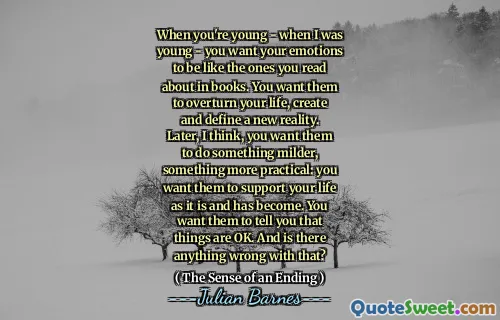
He was too clever. If you're that clever you can argue yourself into anything. You just leave common sense behind.
This quote from Julian Barnes' The Sense of an Ending poignantly captures a subtle but profound human tendency: intelligence, when unchecked by humility or pragmatism, can become a double-edged sword. The idea that one can "argue yourself into anything" speaks to the peril of intellectual arrogance, where cleverness is wielded not to seek truth or understanding, but as a tool to contort facts, emotions, or situations to align with one’s own desires or justifications. This suggests that intellect alone, without grounding in common sense or ethical consideration, can lead to self-deception or moral ambivalence.
Moreover, it reflects on the delicate balance required between reason and practicality. Common sense acts as a compass that keeps our intellectual explorations tethered to reality. Without it, there is a risk of spiraling into sophistry, where arguments serve merely to win rather than to illuminate or solve. In everyday life, this resonates strongly: too often, the most eloquent or clever mind isn't necessarily the wisest or the most truthful.
In a broader philosophical context, Barnes subtly warns us not to conflate cleverness with wisdom. The protagonist’s observation reminds us to cherish the qualities that anchor us to sincerity and genuine understanding. Intelligence devoid of common sense risks replacing authentic perspective with a facsimile constructed from rationalizations, pointing toward a cautionary tale about the human capacity to deceive ourselves when intellect is not balanced by discernment and humility.






